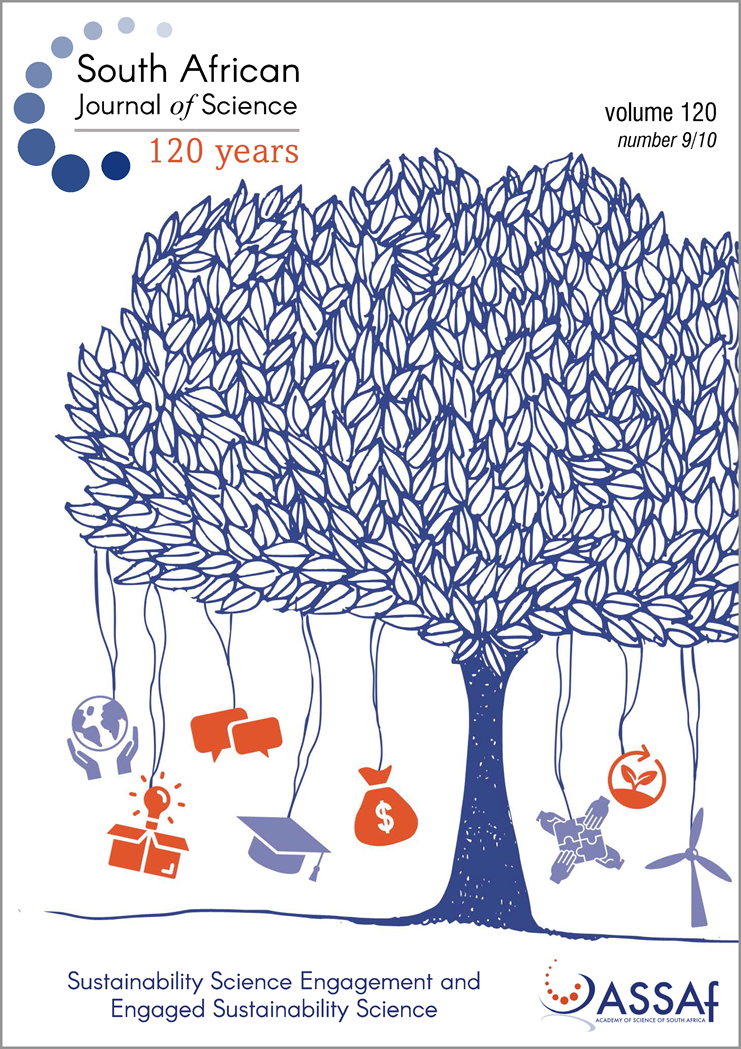Evaluating innovation in transdisciplinary sustainability education: TRANSECTS’ international learning labs
DOI:
https://doi.org/10.17159/sajs.2024/17957Keywords:
evaluation for learning, theory of change, transdisciplinarity, transformative sustainability education, higher education curriculum innovationAbstract
Evaluative research can advance sustainability education through the learning it can enable, at micro and systems levels. This proposition is explored by examining evaluation practice in a 6-year international programme entitled Transdisciplinary Education Collaboration for Transformations in Sustainability involving universities and biosphere reserves/regions in Germany, South Africa and Canada. A Transdisciplinary International Learning Lab (TILL) was evaluated using a theory-based evaluation approach and interviews, focus groups and questionnaires that yielded qualitative data. Through meta-reflection, we concluded that our TILL had elements of a Field School, rather than a Learning Lab, and that our curriculum required more explicit deliberation among programme developers and implementers towards a deeper and shared understanding of pedagogical assumptions and more congruent practice of transdisciplinary and transformative sustainability education. The reflective, theory-based approach enabled learning from evaluation and was captured in a shared refinement of the theory of change, which makes it explicit that learning from pedagogical innovations is not only for students but also for academics. The paper is an invitation to other innovators in sustainability science, education and evaluation in higher education, to share related findings.
Significance:
Through evaluative research, educators gained insight into how transformative sustainability education and transdisciplinarity play out in practice, and how theory-based evaluation can inform more transformative programme design. As higher education practitioners collaborating across continents and disciplines for systemic change, we noted that transformative concepts do not immediately translate into transformative practices, unless we critically and collectively reflect on practice and outcomes. Such (meta) reflection requires data and purposefully designed evaluation frameworks-in-use. This idea is not new, but its manifestation in practice was illuminative and could also be of scholarly interest to other curriculum and evaluation designers.
Downloads
Published
Issue
Section
License

All articles are published under a Creative Commons Attribution 4.0 International Licence
Copyright is retained by the authors. Readers are welcome to reproduce, share and adapt the content without permission provided the source is attributed.
Disclaimer: The publisher and editors accept no responsibility for statements made by the authors
How to Cite
- Abstract 418
- PDF 563
- EPUB 197
- XML 202
- Peer review history 296












.png)